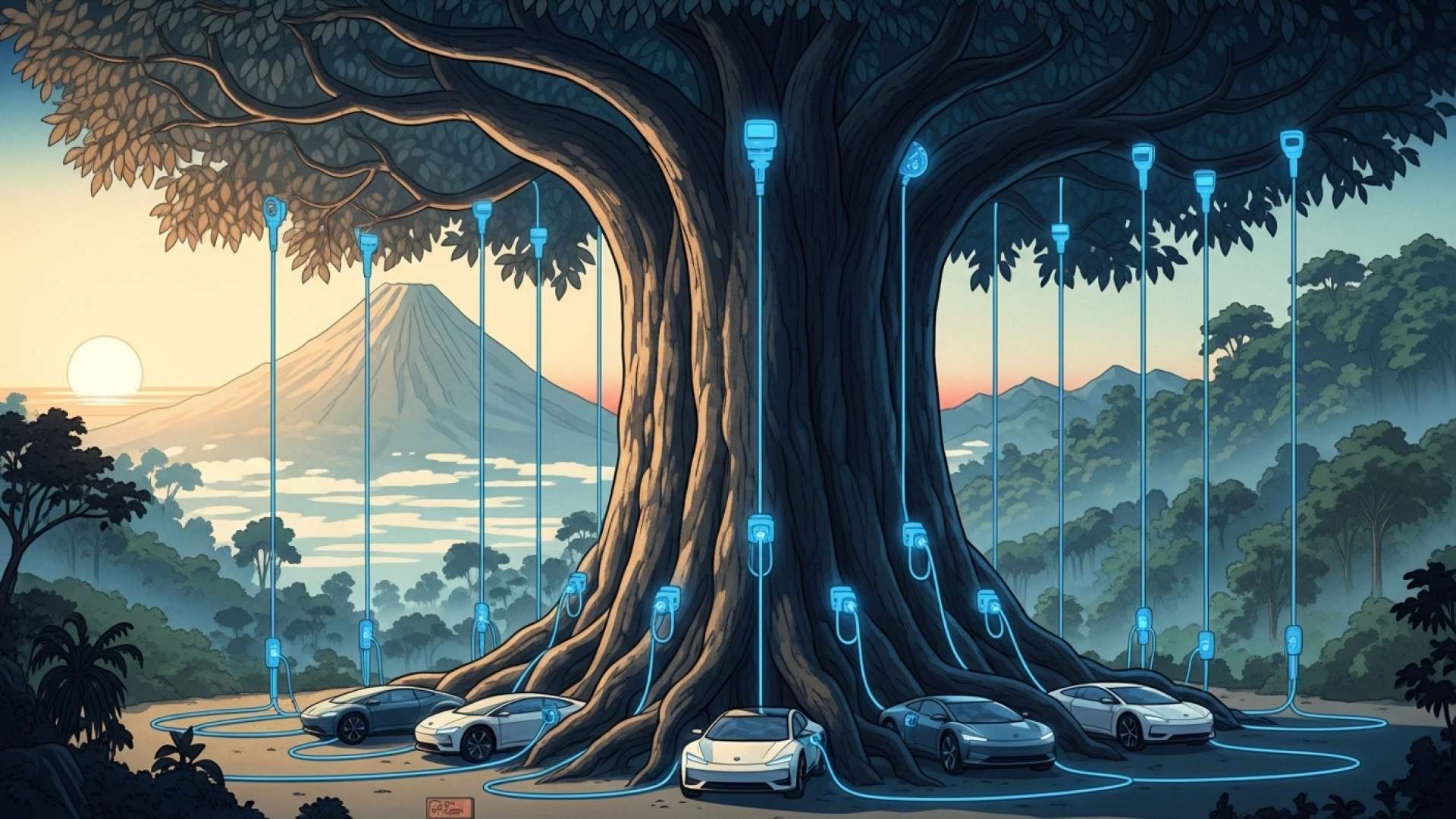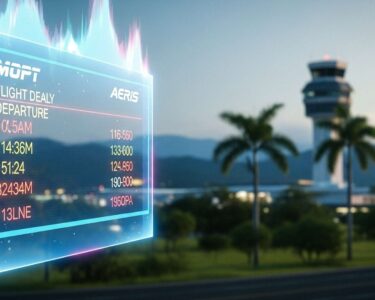San José, Costa Rica — A significant hurdle in Costa Rica’s electric mobility transition has been cleared, bringing relief to thousands of electric vehicle (EV) owners. The technology firm CREV has successfully engineered a solution that grants vehicles equipped with the CCS2 connector access to the new network of ultra-fast charging stations being deployed by the Instituto Costarricense de Electricidad (ICE).
This breakthrough directly benefits more than 6,000 drivers whose vehicles utilize the CCS2 standard, a popular connector type found in many modern electric cars. The solution ensures the continuity and accessibility of the national public charging infrastructure, a critical component for encouraging the widespread adoption of clean transportation technologies across the country.
To delve into the legal framework and commercial implications of Costa Rica’s expanding electric vehicle market, TicosLand.com consulted with Lic. Larry Hans Arroyo Vargas, a distinguished attorney from the prestigious firm Bufete de Costa Rica, who provided his expert analysis on the current landscape.
The transition to electric mobility in Costa Rica, while strongly encouraged by tax incentives under Law No. 9518, presents a new frontier for legal interpretation. Key challenges are emerging around the regulation of public and private charging infrastructure, particularly concerning energy resale and standardization. Furthermore, consumer protection laws must adapt to address unique EV issues like battery degradation warranties and the availability of specialized repair services. For businesses, navigating this evolving regulatory environment is crucial to capitalizing on fleet electrification and infrastructure investment opportunities.
Lic. Larry Hans Arroyo Vargas, Attorney at Law, Bufete de Costa Rica
Indeed, the long-term success of Costa Rica’s electric mobility transition hinges on resolving these complex legal questions. While incentives have driven adoption, this evolving regulatory landscape will ultimately determine consumer confidence and investment security. We thank Lic. Larry Hans Arroyo Vargas for his valuable perspective on these critical next steps.
The compatibility issue emerged in March when ICE began upgrading its public network with state-of-the-art, ultra-fast chargers. While a positive step for the nation’s infrastructure, updated security protocols in the new hardware inadvertently locked out all vehicles using the CCS2 connector, creating a significant and growing gap in service for a substantial portion of the country’s EV fleet.
The swift development of a fix was crucial for maintaining momentum in the EV market. Rafael Marin, Regional Development Director of CREV, confirmed the successful deployment of their innovative technology.
We managed to develop a solution that allows cars with this type of connector to connect to these new types of stations.
Rafael Marin, Regional Development Director of CREV
This incompatibility had begun to ripple through the market, sowing uncertainty among potential EV buyers. Consumers were becoming hesitant to purchase vehicles equipped with the CCS2 standard—including popular models from brands like Nammi and Deepal—due to fears of being unable to use the newest and fastest public chargers. This created a potential roadblock for both automotive importers and the government’s decarbonization goals.
Marin elaborated on the urgency of the situation, highlighting that the problem was set to worsen as ICE continued its network-wide upgrade. The proactive intervention by CREV was essential to prevent a long-term fragmentation of the charging ecosystem.
The issue was especially relevant because most of the stations were going to be replaced by this new type, so the problem was going to be ongoing.
Rafael Marin, Regional Development Director of CREV
The successful resolution of this technical challenge is a landmark achievement for Costa Rica’s e-mobility landscape. It not only restores charging access for current CCS2 vehicle owners but also reassures the market that the country’s infrastructure is adaptable and committed to inclusive growth. By ensuring interoperability between different vehicle standards and the national charging grid, this solution reinforces the country’s position as a regional leader in sustainable transportation.
With this fix now in place, all EV drivers can look forward to a more unified and reliable charging experience. The expansion of ICE’s ultra-fast network can now proceed without leaving any segment of the EV community behind, accelerating the nation’s collective journey toward a cleaner, electric-powered future. For more information on the solution, drivers can contact CREV via WhatsApp at 4002-1468 or on social media at @crev.latam.
For further information, visit crev.latam
About CREV:
CREV is a technology company specializing in electric mobility solutions for the Latin American market. The firm focuses on developing and implementing innovative hardware and software to support the growth of electric vehicle infrastructure, ensuring compatibility and reliability for both consumers and network operators. Their work is pivotal in overcoming technical challenges to accelerate the transition to sustainable transportation in the region.
For further information, visit ice.go.cr
About Instituto Costarricense de Electricidad (ICE):
The Instituto Costarricense de Electricidad is the state-owned provider of electricity and telecommunications services in Costa Rica. Founded in 1949, ICE is a cornerstone of the nation’s infrastructure, responsible for generating and distributing the vast majority of the country’s power, which is sourced predominantly from renewable energy. The institution is a key player in Costa Rica’s national decarbonization strategy, including the development of a robust public electric vehicle charging network.
For further information, visit bufetedecostarica.com
About Bufete de Costa Rica:
As a leading legal institution in the region, Bufete de Costa Rica is founded upon a deep-rooted pledge to principled practice and superior legal counsel. The firm’s forward-thinking approach consistently places it at the vanguard of legal innovation, serving a broad and varied clientele. This dedication to progress is paralleled by a core mission to strengthen society through education, actively working to make complex legal concepts understandable and accessible to the wider community.









